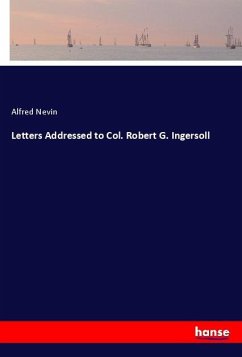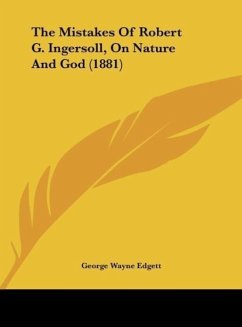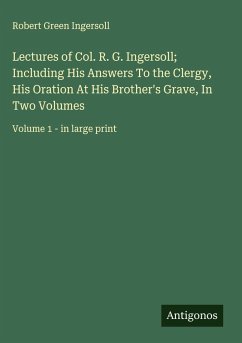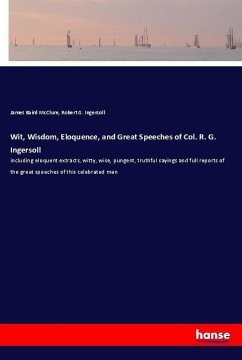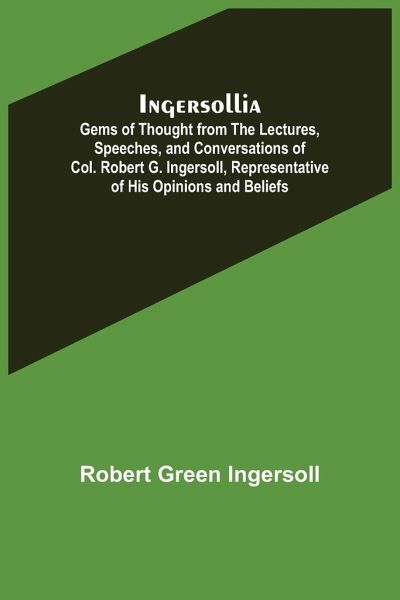
Ingersollia; Gems of Thought from the Lectures, Speeches, and Conversations of Col. Robert G. Ingersoll, Representative of His Opinions and Beliefs
Versandkostenfrei!
Versandfertig in 1-2 Wochen
16,99 €
inkl. MwSt.

PAYBACK Punkte
8 °P sammeln!
Ingersollia; Gems of Thought from the Lectures, Speeches, and Conversations of Col. Robert G. Ingersoll, Representative of His Opinions and Beliefs , a classic since it was first published. Has been considered important throughout the human history, and so that this work is never forgotten we have made efforts in its preservation by republishing this book in a modern format for present and future generations. This whole book has been reformatted, retyped and designed. These books are not made of scanned copies and hence the text is clear and readable.



